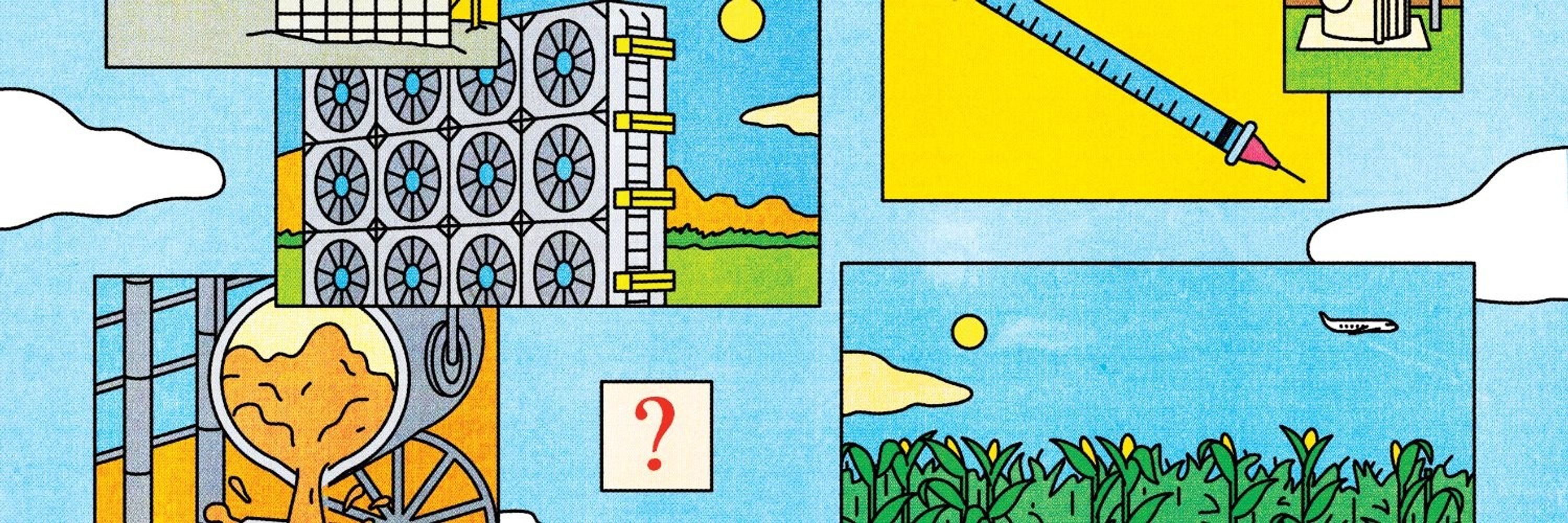
Works in Progress
@worksinprogress.bsky.social
Works in Progress is an online magazine about new & underrated ways to improve the world. worksinprogress.co
Pinned
Works in Progress is on Bluesky! 🥳
Find our team & authors in this starter pack:
Find our team & authors in this starter pack:
September 17, 2025 at 3:45 PM
Synthetic diamonds are now purer, more beautiful, and vastly cheaper than mined diamonds.
August 3, 2025 at 4:21 PM
Synthetic diamonds are now purer, more beautiful, and vastly cheaper than mined diamonds.
Low birth rates may be bad rather than good news for our ability to deal with climate change.
August 2, 2025 at 3:58 PM
Low birth rates may be bad rather than good news for our ability to deal with climate change.
In the nineteenth century, the societies of Europe and North America were profoundly transformed by the vast railway networks they built. When these railway networks entered cities, however, they faced a crucial problem: they had to stop.
July 31, 2025 at 11:33 AM
In the nineteenth century, the societies of Europe and North America were profoundly transformed by the vast railway networks they built. When these railway networks entered cities, however, they faced a crucial problem: they had to stop.
When FDA standards for drug safety and efficacy became stricter in the 1960s, drug developers almost abandoned rare diseases due to regulator unfamiliarity and low revenue potential.
July 29, 2025 at 11:41 AM
When FDA standards for drug safety and efficacy became stricter in the 1960s, drug developers almost abandoned rare diseases due to regulator unfamiliarity and low revenue potential.
1760:
🇫🇷25 million people
🏴5.5 million
2025
🇫🇷68 million
🏴56 million
If France’s population growth had kept pace with England’s, there would be 250 million Frenchmen and another 320 million abroad.
What happened? 🧵
www.worksinprogress.news/p/570-millio...
🇫🇷25 million people
🏴5.5 million
2025
🇫🇷68 million
🏴56 million
If France’s population growth had kept pace with England’s, there would be 250 million Frenchmen and another 320 million abroad.
What happened? 🧵
www.worksinprogress.news/p/570-millio...

570 million Frenchmen
France's decline coincided with a collapse in its birth rate – now we know why.
www.worksinprogress.news
April 16, 2025 at 4:09 PM
1760:
🇫🇷25 million people
🏴5.5 million
2025
🇫🇷68 million
🏴56 million
If France’s population growth had kept pace with England’s, there would be 250 million Frenchmen and another 320 million abroad.
What happened? 🧵
www.worksinprogress.news/p/570-millio...
🇫🇷25 million people
🏴5.5 million
2025
🇫🇷68 million
🏴56 million
If France’s population growth had kept pace with England’s, there would be 250 million Frenchmen and another 320 million abroad.
What happened? 🧵
www.worksinprogress.news/p/570-millio...
There exists a popular sentiment that we can’t build as well as we used to and our best days are behind us. But when we choose to, we can still build beautiful and interesting developments.
Here’s a tour of 10 new projects that are creating a better built environment. 🧵
Here’s a tour of 10 new projects that are creating a better built environment. 🧵


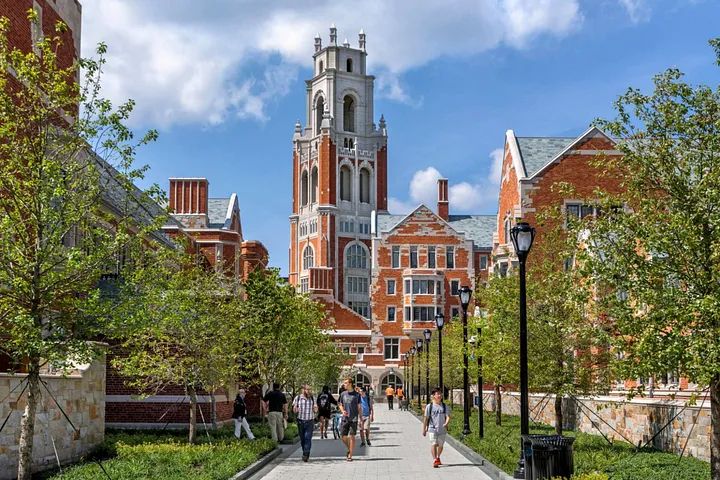

February 4, 2025 at 9:36 AM
There exists a popular sentiment that we can’t build as well as we used to and our best days are behind us. But when we choose to, we can still build beautiful and interesting developments.
Here’s a tour of 10 new projects that are creating a better built environment. 🧵
Here’s a tour of 10 new projects that are creating a better built environment. 🧵
Planes aren’t getting faster. Buildings in the developed world aren’t getting taller. Roads are getting slower. But the world’s largest passenger ship record has been broken 9 times this century. They show what is possible w/o the constraints that stifle progress on dry land. 🧵
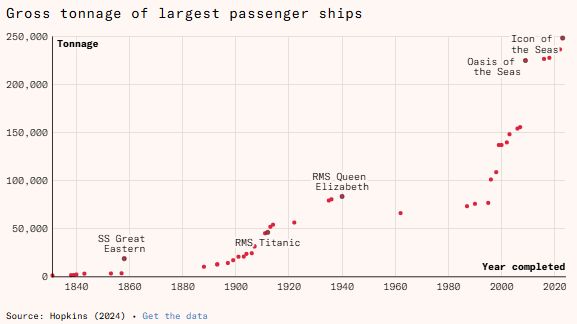
January 27, 2025 at 5:48 PM
Planes aren’t getting faster. Buildings in the developed world aren’t getting taller. Roads are getting slower. But the world’s largest passenger ship record has been broken 9 times this century. They show what is possible w/o the constraints that stifle progress on dry land. 🧵
We can still build great things, at least in some places. Here’s a run down of 10 major new infrastructure projects that have happened recently.

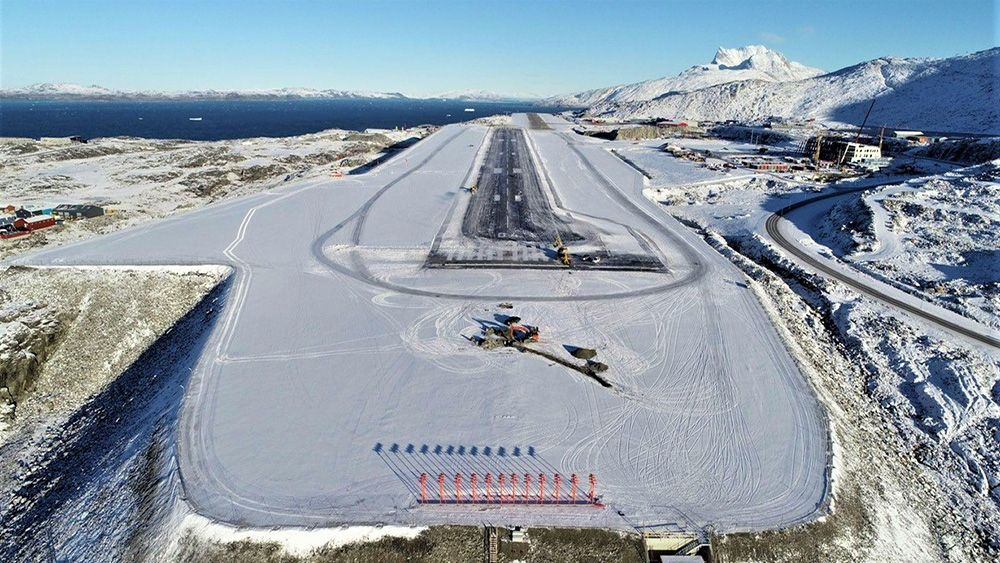
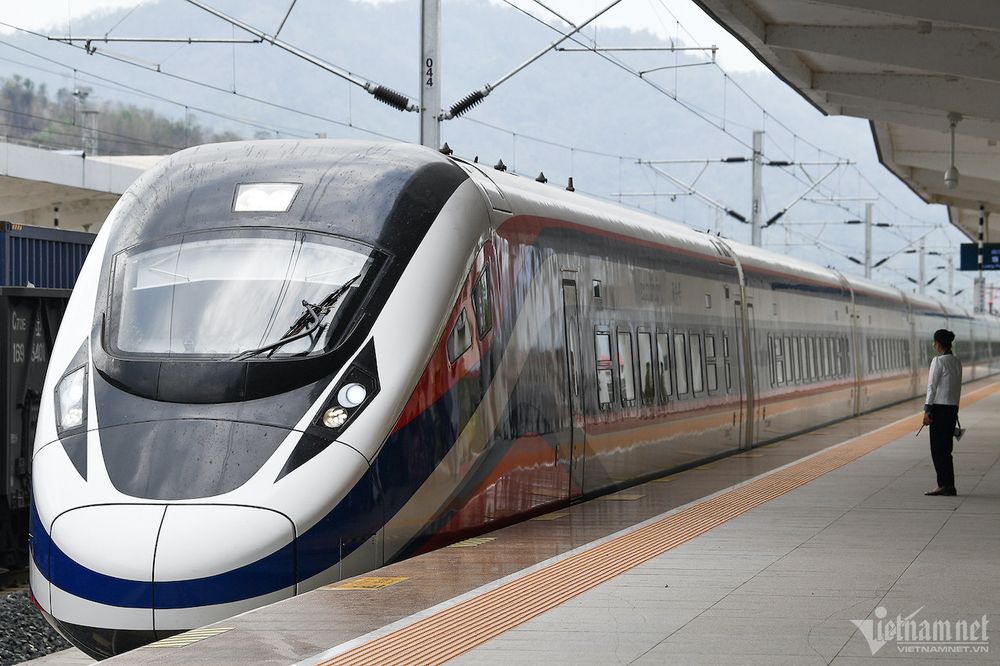
January 21, 2025 at 9:25 AM
We can still build great things, at least in some places. Here’s a run down of 10 major new infrastructure projects that have happened recently.
Madrid’s metro was 71 miles long in 1995. That would be the world’s 51st longest today, reasonable considering Madrid is the 57th largest city by population.
Yet over 12 years, the metro would ~3x in length at costs much lower than was thought possible. Here’s how they did it. 🧵
Yet over 12 years, the metro would ~3x in length at costs much lower than was thought possible. Here’s how they did it. 🧵


December 17, 2024 at 10:43 AM
Madrid’s metro was 71 miles long in 1995. That would be the world’s 51st longest today, reasonable considering Madrid is the 57th largest city by population.
Yet over 12 years, the metro would ~3x in length at costs much lower than was thought possible. Here’s how they did it. 🧵
Yet over 12 years, the metro would ~3x in length at costs much lower than was thought possible. Here’s how they did it. 🧵
Reposted by Works in Progress
Very informative article about how animals were and are used as chemical factories. Lots of stuff in there I had never heard of! I’m in awe of the people who discovered all of this, but even more so of modern biotechnology offering synthetic alternatives.
worksinprogress.co/issue/animal...
worksinprogress.co/issue/animal...

Animals as chemical factories - Works in Progress
Horses bled for antivenom, crabs drained for endotoxin tests, and silkworms boiled for silk. Science can now replace these practices with synthetic alternatives — but we need to find ways to scale the...
worksinprogress.co
December 7, 2024 at 12:10 PM
Very informative article about how animals were and are used as chemical factories. Lots of stuff in there I had never heard of! I’m in awe of the people who discovered all of this, but even more so of modern biotechnology offering synthetic alternatives.
worksinprogress.co/issue/animal...
worksinprogress.co/issue/animal...
Reposted by Works in Progress
really great read on how Madrid (and Spain by large) have some of the cost-effective transit constructions in the world worksinprogress.co/issue/how-ma...

December 6, 2024 at 7:31 PM
really great read on how Madrid (and Spain by large) have some of the cost-effective transit constructions in the world worksinprogress.co/issue/how-ma...
Reposted by Works in Progress
good piece on how Madrid built out a massive metro expansion for like 1/20th of what it costs in NYC worksinprogress.co/issue/how-ma...

How Madrid built its metro cheaply - Works in Progress
Madrid tripled the length of its metro system in just 12 years — faster and cheaper than almost any other city in the world. What can its expansion teach other cities?
worksinprogress.co
December 6, 2024 at 7:21 PM
good piece on how Madrid built out a massive metro expansion for like 1/20th of what it costs in NYC worksinprogress.co/issue/how-ma...
Reposted by Works in Progress
“Every year, over 700,000 horseshoe crabs are caught and bled. The global vaccine industry uses an estimated 600 million chicken eggs a year to produce influenza vaccines. And we boil between 420 billion and 1 trillion silkworms every year to produce silk.”
Could we replace them with synthetic bio?
Could we replace them with synthetic bio?
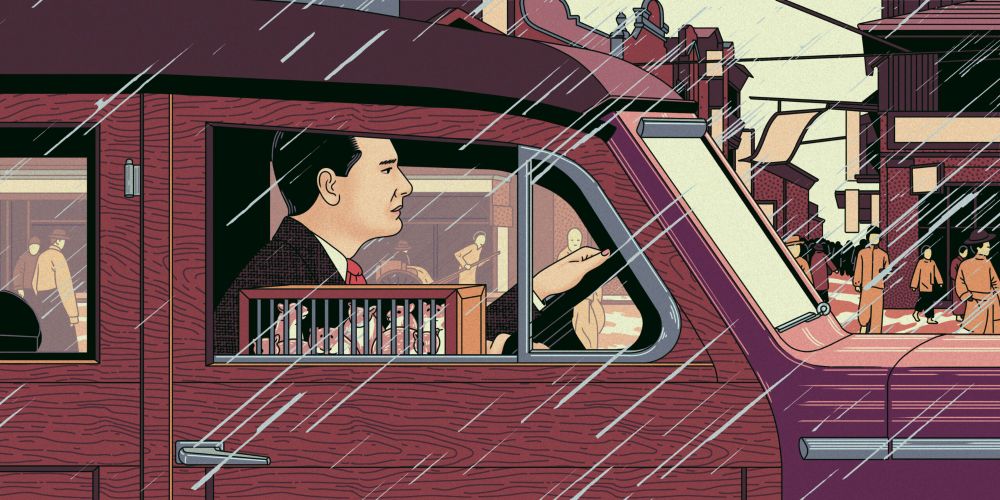
Animals as chemical factories - Works in Progress
Horses bled for antivenom, crabs drained for endotoxin tests, and silkworms boiled for silk. Science can now replace these practices with synthetic alternatives — but we need to find ways to scale the...
worksinprogress.co
December 6, 2024 at 8:42 AM
“Every year, over 700,000 horseshoe crabs are caught and bled. The global vaccine industry uses an estimated 600 million chicken eggs a year to produce influenza vaccines. And we boil between 420 billion and 1 trillion silkworms every year to produce silk.”
Could we replace them with synthetic bio?
Could we replace them with synthetic bio?
Reposted by Works in Progress
This is a great article that gets at another reason why blue cities have such terrible homelessness issues. Housed relatives and friends do not have the space to lend to displaced friends and family like they would in cheaper markets, making people homeless.
worksinprogress.co/issue/why-ho...
worksinprogress.co/issue/why-ho...

Why housing shortages cause homelessness - Works in Progress
Why do high-cost cities have more homelessness? It's not just about rents — it’s also about the rooms friends and family can’t afford to share.
worksinprogress.co
December 5, 2024 at 9:03 PM
This is a great article that gets at another reason why blue cities have such terrible homelessness issues. Housed relatives and friends do not have the space to lend to displaced friends and family like they would in cheaper markets, making people homeless.
worksinprogress.co/issue/why-ho...
worksinprogress.co/issue/why-ho...
Reposted by Works in Progress
A new piece by Salim Furth makes important points on the relationships between homelessness and housing supply, which is more complicated than some analyses suggest: worksinprogress.co/issue/why-ho...

Why housing shortages cause homelessness - Works in Progress
Why do high-cost cities have more homelessness? It's not just about rents — it’s also about the rooms friends and family can’t afford to share.
worksinprogress.co
December 5, 2024 at 11:43 PM
A new piece by Salim Furth makes important points on the relationships between homelessness and housing supply, which is more complicated than some analyses suggest: worksinprogress.co/issue/why-ho...
Reposted by Works in Progress
Over the last century, milk productivity by the average U.S. dairy cow has risen 6-fold!
Full story worksinprogress.co/issue/how-bi... 🧪
Full story worksinprogress.co/issue/how-bi... 🧪

December 5, 2024 at 8:19 PM
Over the last century, milk productivity by the average U.S. dairy cow has risen 6-fold!
Full story worksinprogress.co/issue/how-bi... 🧪
Full story worksinprogress.co/issue/how-bi... 🧪
Reposted by Works in Progress
Bsky folks and #EconSky,
The cool people at @worksinprogress.bsky.social invited me to write an article for their December issue about the fascinating story of innovation in US dairy genetics. Roughly based on some of my research in this area.
My highlights:
worksinprogress.co/issue/how-bi...
The cool people at @worksinprogress.bsky.social invited me to write an article for their December issue about the fascinating story of innovation in US dairy genetics. Roughly based on some of my research in this area.
My highlights:
worksinprogress.co/issue/how-bi...

How big data created the modern dairy cow - Works in Progress
What do cryogenics, butterfat tests, and genetic data have in common? They’re some of the reasons behind the world’s most productive dairy cows. Here's how it all started.
worksinprogress.co
December 5, 2024 at 3:53 PM
Bsky folks and #EconSky,
The cool people at @worksinprogress.bsky.social invited me to write an article for their December issue about the fascinating story of innovation in US dairy genetics. Roughly based on some of my research in this area.
My highlights:
worksinprogress.co/issue/how-bi...
The cool people at @worksinprogress.bsky.social invited me to write an article for their December issue about the fascinating story of innovation in US dairy genetics. Roughly based on some of my research in this area.
My highlights:
worksinprogress.co/issue/how-bi...
Reposted by Works in Progress
It’s widely accepted *that* less expensive housing markets see less homelessness, but this important piece shows *why*: family & friends have more space to spare worksinprogress.co/issue/why-ho...

Why housing shortages cause homelessness - Works in Progress
Why do high-cost cities have more homelessness? It's not just about rents — it’s also about the rooms friends and family can’t afford to share.
worksinprogress.co
December 5, 2024 at 6:18 PM
It’s widely accepted *that* less expensive housing markets see less homelessness, but this important piece shows *why*: family & friends have more space to spare worksinprogress.co/issue/why-ho...
Our latest issue is now out!
- Animals as chemical factories
- How housing shortages cause homelessness
- Where the glamour of progress went
- How big data created the modern dairy cow
- Urbanist cruise ships
- Functionalism
- How Madrid built its Metro
- Animals as chemical factories
- How housing shortages cause homelessness
- Where the glamour of progress went
- How big data created the modern dairy cow
- Urbanist cruise ships
- Functionalism
- How Madrid built its Metro
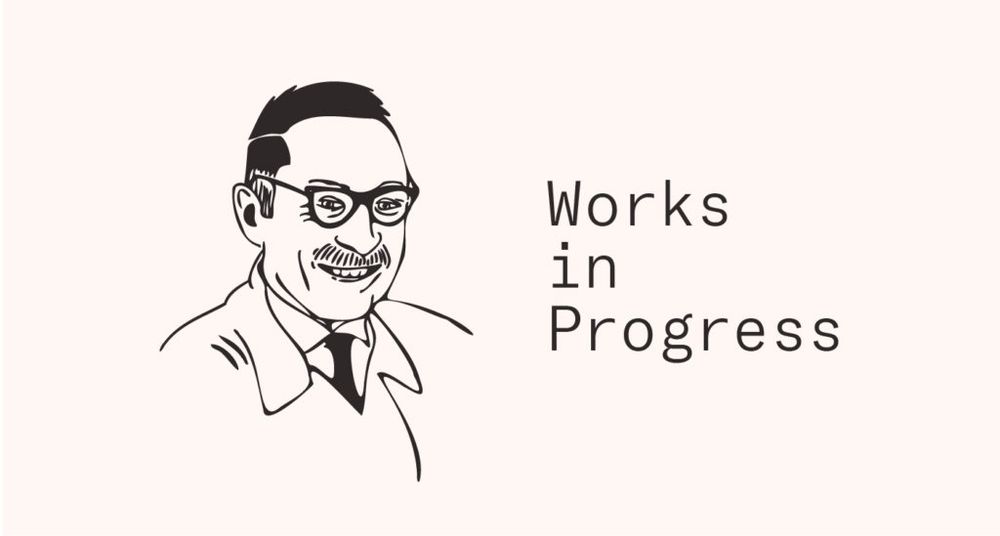
Home - Works in Progress
Works in Progress is an online magazine dedicated to sharing new and underrated ideas to improve the world, and features original writing from some of the most interesting thinkers in the world.
worksinprogress.co
December 5, 2024 at 4:40 PM
Our latest issue is now out!
- Animals as chemical factories
- How housing shortages cause homelessness
- Where the glamour of progress went
- How big data created the modern dairy cow
- Urbanist cruise ships
- Functionalism
- How Madrid built its Metro
- Animals as chemical factories
- How housing shortages cause homelessness
- Where the glamour of progress went
- How big data created the modern dairy cow
- Urbanist cruise ships
- Functionalism
- How Madrid built its Metro
Geothermal contributed only 0.35% of global energy production in 2020.
But 0.005% of Earth’s heat could power humanity for a million years.
How can we harness this nearly unlimited heat source and what are the new technology developments? 🧵
But 0.005% of Earth’s heat could power humanity for a million years.
How can we harness this nearly unlimited heat source and what are the new technology developments? 🧵

November 22, 2024 at 10:30 AM
Geothermal contributed only 0.35% of global energy production in 2020.
But 0.005% of Earth’s heat could power humanity for a million years.
How can we harness this nearly unlimited heat source and what are the new technology developments? 🧵
But 0.005% of Earth’s heat could power humanity for a million years.
How can we harness this nearly unlimited heat source and what are the new technology developments? 🧵
Works in Progress is on Bluesky! 🥳
Find our team & authors in this starter pack:
Find our team & authors in this starter pack:
November 20, 2024 at 1:11 PM
Works in Progress is on Bluesky! 🥳
Find our team & authors in this starter pack:
Find our team & authors in this starter pack:

